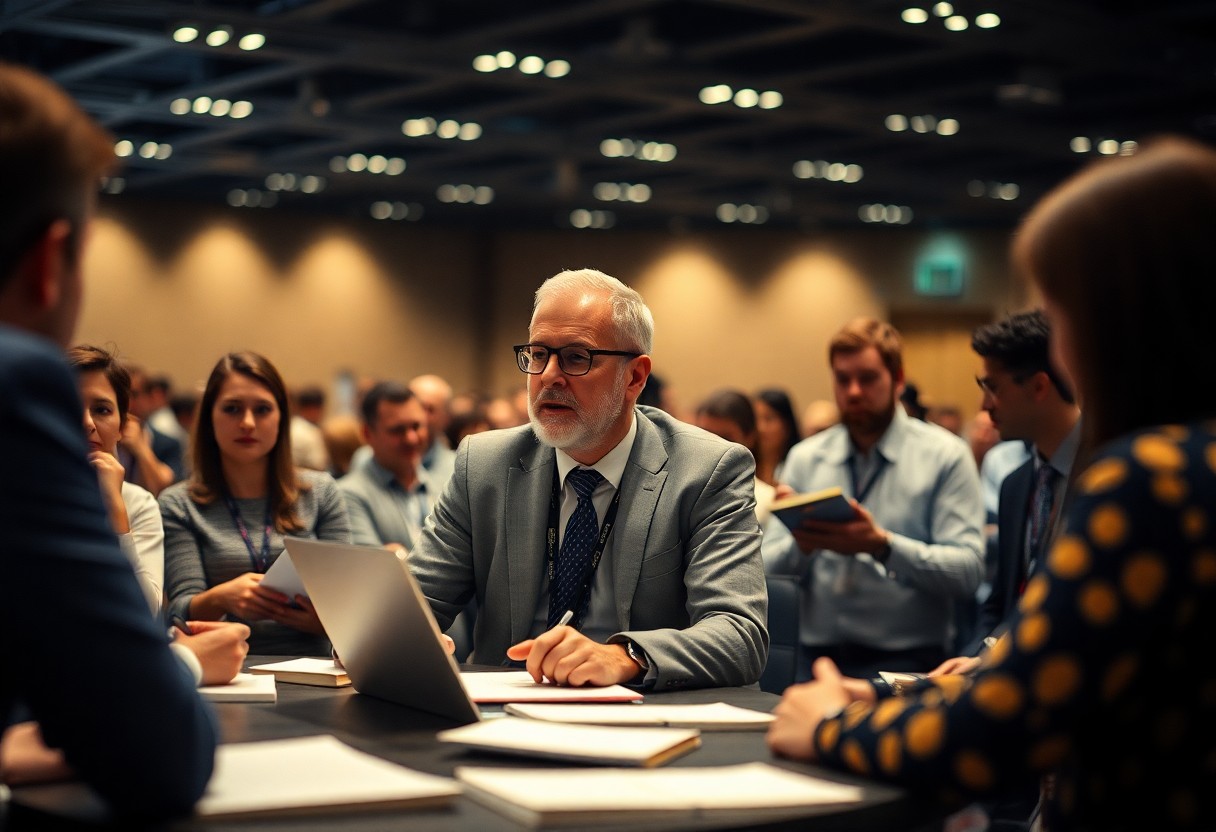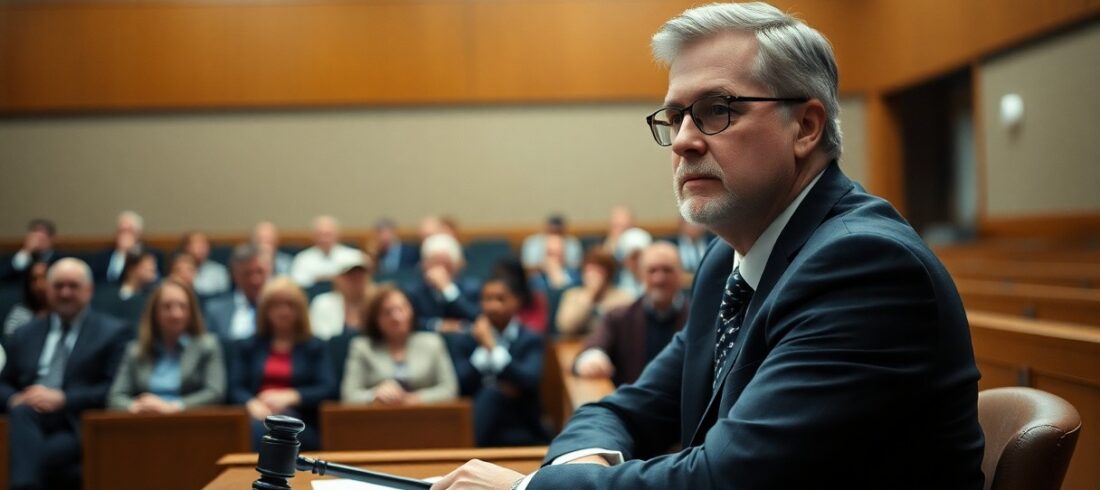As a psychology expert witness, you understand the importance of staying up-to-date with the latest developments in your field. Your expertise is built on a foundation of knowledge and experience, and continuing professional development is important to maintaining your authority. You need to continually update your skills and knowledge to provide the best possible service. In this blog post, you will learn about the steps you can take to achieve ongoing growth and stay current in your profession.
Key Takeaways:
- Staying updated with the latest research and methodologies is imperative for psychology expert witnesses to maintain their credibility and provide accurate testimony, which can be achieved by engaging in ongoing professional development activities such as attending conferences and workshops.
- Developing a personal growth plan that outlines specific goals and objectives for continuing education and training can help psychology expert witnesses to focus their efforts and ensure they are meeting the necessary standards for their profession.
- Expanding their skill set and knowledge base through activities such as peer consultation, mentoring, and self-directed learning can enable psychology expert witnesses to broaden their expertise and stay current with emerging trends and best practices in their field.
Setting the Foundation
A strong foundation is important for your ongoing growth as a psychology expert witness. You need to establish a solid base to build upon, and this involves understanding the principles of continuing professional development.
Defining Continuing Professional Development
Before you initiate on your journey, you must define what continuing professional development means to you. You will find that it involves a series of activities designed to enhance your skills and knowledge, ensuring you stay up-to-date with the latest developments in your field.
Importance of Ongoing Growth for Psychology Expert Witnesses
Setting yourself up for success requires an understanding of the importance of ongoing growth. You must recognize that your profession demands continuous learning, and staying stagnant can negatively impact your credibility and expertise.
Also, as you progress in your career, you will encounter new challenges and complexities that require you to adapt and evolve. Your ongoing growth will enable you to stay ahead of the curve, providing you with the confidence and expertise to tackle even the most demanding cases, and ultimately, delivering high-quality services to your clients.
Identifying Areas for Development
Clearly, identifying areas for development is a vital step in continuing professional development as a psychology expert witness. You need to assess your skills, knowledge, and experience to determine where you need improvement. This involves reflecting on your past cases, seeking feedback from colleagues and clients, and staying up-to-date with industry developments.
Recognizing Knowledge Gaps
Around your current level of expertise, you should consider what areas you need to improve or expand upon. You can do this by evaluating your performance in past cases and identifying any gaps in your knowledge or skills that may have impacted your work.
Staying Current with Industry Trends and Research
Against the backdrop of rapidly evolving psychological research and industry trends, you must stay informed to remain effective as an expert witness. You should prioritize ongoing education and professional development to ensure your knowledge and skills are current and relevant.
The key to staying current is to engage in regular reading of industry publications, attendance at conferences and workshops, and participation in online forums and discussions. This will enable you to stay abreast of new developments and advancements in your field, allowing you to provide the most accurate and reliable expert testimony possible. You can also explore new areas of specialization or seek out mentorship from experienced colleagues to further enhance your skills and knowledge. By doing so, you will be able to maintain your credibility and provide high-quality services to your clients.

Creating a Personalized Development Plan
Once again, as a psychology expert witness, you are expected to stay updated with the latest developments in your field. Creating a personalized development plan is vital to achieve this goal. You need to identify your strengths, weaknesses, and areas that require improvement to create an effective plan.
Setting SMART Goals
Along with identifying areas for improvement, you should set specific, measurable, achievable, relevant, and time-bound (SMART) goals for your development. This will help you to track your progress and stay focused on your objectives.
Prioritizing Areas for Improvement
One of the key aspects of creating a development plan is prioritizing areas that need improvement. You should assess your current skills and knowledge to determine which areas require more attention.
Improvement in your skills and knowledge is an ongoing process, and prioritizing areas for improvement helps you to allocate your time and resources effectively. You can use various tools and techniques, such as self-assessment, peer feedback, and performance evaluations, to identify the areas that need improvement and prioritize them accordingly, allowing you to create a personalized development plan that meets your unique needs and goals.
Implementing a Growth Strategy
Your growth as a psychology expert witness depends on your ability to continually update your skills and knowledge. This involves seeking out new opportunities for training and education, as well as engaging with other professionals in your field.
Seeking Out Training and Education Opportunities
Along with staying current on the latest research and developments, you should prioritize ongoing education and training to enhance your expertise and stay competitive in the field.
Joining Professional Organizations and Networking
Before you can leverage the benefits of professional organizations, you need to join them and start building relationships with other experts in your field.
Another way to expand your network is by attending conferences and seminars, where you can meet other psychology expert witnesses and learn about new developments in the field, ultimately helping you to refine your skills and stay up-to-date on best practices.
Staying Current and Adaptable
Now, as a psychology expert witness, you must prioritize ongoing growth to maintain your expertise and provide high-quality services.
For instance, in the subsection of
Engaging in Lifelong Learning
, you will find that pursuing additional education and training is important to stay updated on the latest research and methodologies in your field, enabling you to provide the most effective testimony.
Against the backdrop of rapidly evolving technologies,
Embracing New Technologies and Methods
is vital, as you need to be familiar with new tools and techniques to analyze data, prepare reports, and present your findings in court.
Further, embracing new technologies and methods allows you to streamline your workflow, enhance your credibility, and provide more accurate and reliable expert testimony, which is important for your success as a psychology expert witness, and you should continually assess and adapt to new developments in your field to maintain your competitive edge.
Overcoming Challenges and Obstacles
Unlike other professionals, as a psychology expert witness, you face unique challenges in your continuing professional development. You must navigate complex legal systems, stay updated on the latest research, and manage your time effectively to meet deadlines.
Managing Time and Resources
Above all, you need to prioritize your tasks and allocate your time wisely to balance your workload and professional development. You should focus on the most important tasks and delegate or defer less critical ones to optimize your resources.
Maintaining Motivation and Accountability
Alongside your daily responsibilities, you need to set clear goals and track your progress to stay motivated and accountable. You should establish a system to monitor your achievements and adjust your strategy as needed to ensure your continued growth.
Obstacles such as self-doubt, lack of support, or limited access to resources can hinder your motivation and accountability. You can overcome these obstacles by seeking guidance from mentors, joining professional networks, or participating in peer review groups to stay motivated and focused on your goals, ensuring your continued growth as a psychology expert witness.
To wrap up
Hence, as you continue on your path as a psychology expert witness, you will find that ongoing growth is crucial to your success. You must commit to continuing professional development, following the 5 steps outlined to stay updated on best practices and industry developments. By doing so, you will enhance your expertise, maintaining your authority in the field and ensuring your services remain in high demand, ultimately benefiting your career and your clients. You will stay ahead in your profession.
FAQ
Q: What is the importance of ongoing growth for psychology expert witnesses, and how does it impact their professional development?
A: Ongoing growth is necessary for psychology expert witnesses as it enables them to stay updated with the latest research, methodologies, and best practices in their field. This, in turn, enhances their credibility and competence in providing expert testimony, ultimately leading to better outcomes in legal proceedings. By prioritizing ongoing growth, psychology expert witnesses can refine their skills, expand their knowledge, and maintain their expertise, which is vital in the ever-evolving field of psychology and law.
Q: What are the key steps involved in continuing professional development for psychology expert witnesses, and how can they be implemented effectively?
A: The 5 steps involved in continuing professional development for psychology expert witnesses include: (1) staying current with industry developments through attending conferences and workshops, (2) engaging in peer consultation and networking, (3) pursuing additional education and training, (4) participating in mentorship programs, and (5) reflecting on past experiences and feedback to inform future practice. By implementing these steps, psychology expert witnesses can ensure they are providing the highest level of expertise and staying abreast of emerging trends and research in the field.
Q: How can psychology expert witnesses balance the demands of their practice with the need for ongoing professional development, and what strategies can they use to prioritize their growth?
A: Balancing practice demands with ongoing professional development requires psychology expert witnesses to be intentional and strategic in their approach. They can prioritize their growth by scheduling dedicated time for professional development, setting clear goals and objectives, and seeking support from colleagues and mentors. Additionally, they can leverage technology, such as online courses and webinars, to access educational resources and networking opportunities that fit their busy schedules.
Q: What role does self-reflection and feedback play in the ongoing growth and development of psychology expert witnesses, and how can they incorporate these practices into their professional routine?
A: Self-reflection and feedback are necessary components of ongoing growth for psychology expert witnesses, as they provide opportunities for introspection, skill refinement, and improved performance. Psychology expert witnesses can incorporate these practices into their routine by regularly soliciting feedback from colleagues and clients, engaging in reflective journaling or supervision, and using outcome data to inform their practice. By embracing a growth mindset and being open to constructive criticism, psychology expert witnesses can continually refine their expertise and provide high-quality services.
Q: How can psychology expert witnesses evaluate the effectiveness of their ongoing professional development efforts, and what metrics or indicators can they use to assess their growth and progress?
A: Psychology expert witnesses can evaluate the effectiveness of their ongoing professional development efforts by tracking metrics such as the number of hours spent on continuing education, the number of presentations or publications produced, and feedback from clients or peers. They can also assess their growth and progress by reflecting on their increased confidence and competence in providing expert testimony, as well as their ability to apply new knowledge and skills in real-world settings. By regularly assessing their progress, psychology expert witnesses can identify areas for further development and make informed decisions about their ongoing professional growth.





